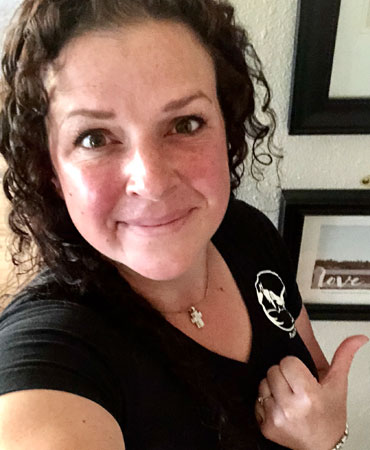When it comes to search engine optimization (SEO) you need to make sure your company is getting it right.
We’re going to take you through some basics so that you can become a pro in no time. Don’t worry, we’re going to make this information approachable and applicable. As an SEO company ourselves, GJ’s got the terrific tips ‘n tricks. (And apparently some alliteration, too.)
What is SEO?
SEO stands for “search engine optimization.” A common misconception about SEO is that it only raises the QUANTITY of web traffic, however, it also increases the QUALITY of web traffic, getting your information to the searchers who want it most. In a way, you can look at SEO as a trusty friend who is bringing you consumers who are ALREADY interested in what you have to offer.
SEO increases brand exposure and the quality and quantity of website traffic through NON-PAID (or “organic”) search engine results, so, it’s easy on the wallet, too. Damn, alright, SEO, we want to be friends with you already.
Why does SEO matter?
If your business isn’t easily found on Google, you could be losing out on opportunities, cash flow, and valuable business prospects. What’s worse is that your competitors who dominate local SEO services could be generating more business than you, thanks to being in the Google gods’ good graces.
Don’t be fooled. While the acronym sounds very techy, this concept is just as much about people as it is about search engines.
It’s about understanding what people are searching for online, what type of questions they’re asking, the way they talk, and what type of content they hope to see.
SEO is like the study guide for the test, so make sure not to sleep on it!
THE MOST IMPORTANT THING WE’LL SAY ABOUT SEO: SEO has ~20X more traffic opportunities than PPC on both mobile and desktop.
Knowing your audience’s intent is one side of SEO. Delivering SEO in a way that search engine crawlers can retrieve, communicate with, and understanding is the other.
We’re going to teach you both!
What’s important for me to know about search engines?
Imagine that search engines are like answering machines scouring billions of pieces of content, evaluating thousands of factors to pair you with the content that best answers your query.
They do this via “crawling and indexing” and discover and catalog all of the internet’s web pages, images, PDFs, videos, etc., and order them based on what best fits the question. The ordering part is called “ranking.”
We mentioned that “organic” searches are unpaid for, but what other characteristics make them “organic”? How can one spot organic results?
Again, organic search results are earned through SEO instead of being paid for like advertising.
Back in the day, these were easy to point out + identify. The ads were clearly labeled, with the organic results following.
How does one spot organic results today?
Search engine results, or SERPs, are filled with more dynamic organic results formats, or SERP features, than we’ve ever seen.
Some examples of SERP features are:
- “People Also Ask” boxes
- Featured snippets or answer boxes
- Image carousels
New SERP features continue to emerge to help people find what they’re looking for.
Here’s an example. If you search for “Atlanta cuisine,” you’ll see a “local pack” result made up of Atlanta food places. Similarly, if you search the weather, you’ll see a weather forecast for the city you’re searching for right at the top of all of your results in the SERP. This takes you to the information ASAP instead of having to click on a link.
Nice ‘n easy, right?
Some SERP features on Google can be influenced by SEO and are organic, just like the SERP features we bullet-pointed above.
There are many search features that can’t typically be influenced by SEO even though they aren’t paid advertising, though. These features are most often from proprietary data sources like WebMD, IMDb, or Wikipedia.
How do I ensure that my brand is top of mind and at the top of the search engine results page (SERP)?
The key lies in creating incredible content that:
- Is relevant to your target audience
- Is SEO friendly for the algorithms
- Indexes the web and figures out where to rank websites
Okay, so it all boils down to one question then.
How do I know if my content is SEO friendly?
The number one SEO mistake we see brands make is that they’re not using a quality SEO tool to analyze content for SEO compatibility.
These tools are critical for doing the SEO heavy lifting for your content, and they save you truckloads of time.. You can have the best content in the world, but if it isn’t optimized for search engines, it won’t be seen.
Tools like SEMRush do everything from keyword research, competitor keyword tracking, and SEO audits of your site, to tracking your rankings and providing you with ideas and opportunities to rank higher on Google.
Think of it as a one-stop-shop for you to run your content through before it hits the web.
Generating organic traffic to your site, blog, or brand is hard. It requires having a solid grasp of SEO best practices, which requires knowing your audience inside and out.
With tools like SEMRush or Ahrefs (another fan favorite), you’ll be able to see how your content is resonating with your audience. Identifying your weak points or what your competitors do well is a huge part of nailing SEO.
Without using tools like Ahrefs or SEMRush, you’re flying blind when it comes to generating organic traffic for your site. The solution? Utilize an SEO tool in conjunction with the strategy you’ve already been using to get big results.
How can I represent my local business on Google?
If the biz for which you perform your SEO work operates locally–either by storefront or performs services within the area–you qualify for a Google My Business listing.
Basics:
- Ensure your eligibility for Google My Business by having your physical address (a home address counts!) so long as you serve customers face-to-face
- All of your local business data should be honest + accurate
To avoid:
- Creating a Google My Business listing when you are not eligible
- Abuse of the reviews section of your Google My Business listing by posting fake positive reviews for yourself, or fake negatives ones of competitors
Should I hire an SEO professional?
Depending on your workload, time capacity, and what you’re looking for in terms of your website, you could opt to do basic SEO yourself or seek the help of an expert. Either is acceptable!
Knowing how to choose a good SEO company can save you loads of money, time, and future headaches, as applying the wrong SEO techniques is damaging to your site.
In closing
SEO is one of the only marketing tools that, when done correctly, will continue to bring your company profits over time. If you provide solid-as-rock content that deserves to rank for the keywords you need, your traffic can snowball over time. Now there’s a blizzard we can get on board with.
On the other hand, advertising continually empties your wallet in order to send your traffic where it needs to go.
Search engines are getting smarter, but they still need some nudging. Optimizing your site is like fine-tuning the language in which it speaks with the search engines. To get your content properly indexed and displayed to your viewers, well-executed SEO is a must.











0 Comments